यह स्मॉल-कैप अंडरपरफॉर्मर निवेशक अनिल गोयल का बड़ा दांव है। क्या यह लंबी अवधि के लिए वैल्यू बाय है? गणेश बेंजोप्लास्ट लिमिटेड: गणेश बेंजोप्लास्ट एक बड़ा अंडरपरफॉर्मर है। पिछले एक साल में, इसने बड़े पैमाने पर बुल मार्केट के बीच केवल 13% रिटर्न दिया है, जिसमें स्मॉल-कैप इंडेक्स लगभग 70% ऊपर चला गया। लेकिन फिर ये वो स्टॉक हैं जिन पर गोयल जैसे वैल्यू इन्वेस्टर बड़ा दांव लगाते हैं और वह भी लंबी अवधि के लिए। क्या भविष्य में यह स्टॉक बेहतर प्रदर्शन करेगा? चेन्नई के एक साधारण और एकांतप्रिय वैल्यू इन्वेस्टर अनिल कुमार गोयल, गणेश बेंजोप्लास्ट पर बड़ा दांव लगा रहे हैं, जो एक स्मॉल-कैप कंपनी है जो लिक्विड स्टोरेज टैंक और केमिकल बनाती है। गोयल, जो पहले चीनी स्टॉक पर अपने बड़े दांव के लिए जाने जाते थे, अब गणेश बेंजोप्लास्ट के 3% के मालिक हैं, जो स्टॉक मार्केट में एक बड़ा अंडरपरफॉर्मर है। लेकिन फिर, ये वो स्टॉक हैं जिन पर गोयल जैसे वैल्यू इन्वेस्टर बड़ा दांव लगाते हैं और वह भी लंबी अवधि के लिए। 29 जनवरी को बोर्ड मीटिंग में गणेश बेंज़ोप्लास्ट ने गैर-प्रवर्तक निवेशक गोयल को तरजीही शेयर आवंटन के माध्यम से 32.4 करोड़ रुपये मंजूर किए। इसने 1 रुपये के अंकित मूल्य और 162 रुपये प्रति शेयर के प्रीमियम पर 2 मिलियन इक्विटी शेयर जारी किए। उस दिन शेयर की कीमत 5.5% बढ़ी, जबकि बेंचमार्क निफ्टी 50 में सिर्फ़ 2% की बढ़त हुई। गणेश बेंज़ोप्लास्ट का शेयर मूल्य 177 रुपये प्रति शेयर पर कारोबार कर रहा है। कंपनी का बाजार पूंजीकरण 1,300 करोड़ रुपये है और पिछले एक साल में इसने सिर्फ़ 13% रिटर्न दिया है, जो कि उस तेजी से बढ़ते बाजार से कम है, जिसमें स्मॉल-कैप इंडेक्स में लगभग 70% की बढ़ोतरी देखी गई। वॉरेन बफेट की तरह गोयल भी अनावश्यक विविधीकरण में विश्वास नहीं करते। अगर उन्हें लगता है कि भविष्य में यह क्षेत्र अच्छा प्रदर्शन करेगा, तो वे एक ही उद्योग से अलग-अलग कंपनियों को खरीदने में सहज हैं। उदाहरण के लिए, उनके पोर्टफोलियो में धामपुर शुगर मिल्स, द्वारिकेश शुगर इंडस्ट्रीज, उत्तम शुगर मिल्स और कई अन्य जैसे कई चीनी स्टॉक हैं। उनका दृढ़ विश्वास है कि सरकार के इथेनॉल-मिश्रण अभियान से चीनी कंपनियों को लाभ होगा। source:et
रेमंड: रियल्टी और लाइफस्टाइल का विलय गौतम सिंघानिया की फर्म के लिए किस तरह से वैल्यू अनलॉक करेगा: पिछले पांच सालों में, रेमंड ने निफ्टी 50 के 90% लाभ के मुकाबले 118% की बढ़त हासिल की है। हालांकि, इसने निफ्टी रियल्टी इंडेक्स से कम प्रदर्शन किया है। ऐसा लगता है कि रेमंड का मूल्यांकन उसके रियल एस्टेट साथियों जितना नहीं है। लेकिन जल्द ही इसमें बदलाव होने की संभावना है क्योंकि कंपनी अपने कपड़ा और परिधान व्यवसाय को अलग करने की योजना बना रही है। व्यावसायिक उपक्रमों के लिए समय ही सब कुछ होता है। यह सही समय होता है जो उद्यमी को मूनशॉट मोमेंट देने के लिए बड़ी और छोटी तस्वीरों को एक साथ जोड़ता है, जो उसे असंगत लाभ देता है। रेमंड के रियल्टी व्यवसाय के लिए, समय इससे बेहतर नहीं हो सकता था। 2019 में, महामारी से ठीक पहले, कंपनी ने अपना पहला रियल एस्टेट प्रोजेक्ट लॉन्च किया। पिछले पांच सालों में, निफ्टी 50 के 90% लाभ के मुकाबले स्टॉक 118% ऊपर है। लेकिन पिछले पांच सालों में 200% से ज़्यादा की बढ़त वाले निफ्टी रियल्टी इंडेक्स की तुलना में रेमंड का प्रदर्शन कमज़ोर रहा है। ऐसा लगता है कि रेमंड का मूल्यांकन उसके रियल एस्टेट प्रतिस्पर्धियों जितना नहीं है। लेकिन जल्द ही इसमें बदलाव होने की संभावना है क्योंकि कंपनी अपने टेक्सटाइल और अपैरल कारोबार को अलग करके अलग से लिस्ट करने की योजना बना रही है। लगभग दो दशकों से अग्रणी रियल एस्टेट सलाहकार रेमंड को अपना रियल्टी कारोबार शुरू करने का प्रस्ताव दे रहे हैं, क्योंकि कंपनी के पास ठाणे के सबसे ज़्यादा मांग वाले इलाकों में से एक में बहुत ज़्यादा ज़मीन है। अलग होने के बाद, रेमंड एक प्रमुख रियल एस्टेट डेवलपर बन जाएगा। रेमंड रियल्टी के सीईओ हरमोहन साहनी ने ET प्राइम को बताया कि इरादों के बावजूद, रियल एस्टेट में रेमंड के प्रवेश के लिए "गोल्डीलॉक्स मोमेंट" 2019 में ही आया जब कंपनी ने हाई-एंड हाउसिंग प्रोजेक्ट टेन एक्स हैबिटेट (कीमत 80 लाख रुपये से 1.5 करोड़ रुपये के बीच) लॉन्च किया। टेन एक्स हैबिटेट की सफलता के बाद, 2021 से रेमंड ने 'द एड्रेस बाय जीएस', टेन एक्स एरा और इनविक्टस बाय जीएस को तेजी से लॉन्च किया है। साहनी कहते हैं, "हम जमीन को कच्चे माल की तरह देखते हैं, निवेश की तरह नहीं।" source: et
दो तिहाई ऑर्डर शाकाहारी, हंगामे की उम्मीद नहीं थी;'शुद्ध शाकाहारी' बहस पर ज़ोमैटो के दीपिंदर गोयल: 'शुद्ध शाकाहारी' डिलीवरी शुरू करने के बाद सोशल मीडिया पर कड़ी आलोचना के बाद, ज़ोमैटो ने न केवल अपने शाकाहारी बेड़े को हरे रंग में रंगने के फ़ैसले को पलट दिया, बल्कि पेशकश का नाम बदलकर 'केवल शाकाहारी' भी कर दिया। ईटी प्राइम के साथ एक विशेष बातचीत में, संस्थापक और सीईओ गोयल ने बताया कि फ़ैसला किस वजह से लिया गया और फ़ूड-डिलीवरी प्लेटफ़ॉर्म ने यू-टर्न क्यों लिया। पिछले हफ़्ते ज़ोमैटो ने काफ़ी हंगामा मचाया। देश में शाकाहारी ग्राहकों के लिए एक समर्पित ग्रीन फ़्लीट लॉन्च करने के बाद, फ़ूड-टेक कंपनी मुश्किल में पड़ गई। सोशल मीडिया पर टिप्पणियों की बाढ़ आ गई - कुछ ने इसे "साहसिक कदम" के रूप में समर्थन दिया, जबकि कई ने आरोप लगाया कि इसमें जातिवादी और भेदभावपूर्ण भावनाएँ हैं। भारत जैसे देश में, भोजन केवल व्यक्तिगत पसंद के बारे में नहीं है। यह कई लोगों के लिए एक सांस्कृतिक आधारशिला है, जिसमें मांसाहारी और शाकाहारी लोग मान्यताओं से लेकर नैतिक मूल्यों और यहां तक कि कार्बन फुटप्रिंट तक हर चीज पर टकराते हैं, जिससे विवाद पैदा होते हैं जो अक्सर खाने की मेज से परे होते हैं। जबकि देश भर के कई खाने-पीने की दुकानों में 'शुद्ध शाकाहारी' लेबल एक परिचित दृश्य है, नेटिज़ेंस ने ज़ोमैटो पर 'शुद्ध शाकाहारी' नामक अपनी नई सेवा के शुभारंभ के साथ ब्राह्मणवादी रुख अपनाने का आरोप लगाया। प्रतिक्रिया के बाद, कंपनी ने न केवल अपने शाकाहारी बेड़े के लिए नए हरे रंग को लागू करने के फैसले को उलट दिया, बल्कि पेशकश का नाम 'शुद्ध शाकाहारी' से बदलकर 'केवल शाकाहारी' कर दिया। जबकि देश भर के कई खाने-पीने की दुकानों में 'शुद्ध शाकाहारी' लेबल एक परिचित दृश्य है, नेटिज़ेंस ने ज़ोमैटो पर 'शुद्ध शाकाहारी' नामक अपनी नई सेवा के शुभारंभ के साथ ब्राह्मणवादी रुख अपनाने का आरोप लगाया। प्रतिक्रिया के बाद, कंपनी ने न केवल अपने शाकाहारी बेड़े के लिए नए हरे रंग को लागू करने के फैसले को उलट दिया, बल्कि पेशकश का नाम 'शुद्ध शाकाहारी' से बदलकर 'केवल शाकाहारी' कर दिया। लेकिन यह पहली बार नहीं है जब ज़ोमैटो को परेशानी का सामना करना पड़ा है। बेंगलुरु स्थित इस कंपनी ने हमेशा खुद को गैर-अनुरूपतावादी के रूप में पेश किया है, कई मुद्दों पर सार्वजनिक रूप से रुख अपनाया है, जिनसे अधिकांश ब्रांड दूर रहना पसंद करते हैं। जैसे ही धूल जमी, संस्थापक दीपिंदर गोयल ने ईटी प्राइम से मुलाकात की और इस बारे में बात की कि किस वजह से यह निर्णय लिया गया और उसके बाद यू-टर्न लिया गया। source: et
स्टॉक रडार: वोल्टास को 50-डीएमए से ऊपर समर्थन मिला; क्या आपको खरीदना चाहिए? वोल्टास के शेयर में लचीलापन दिखा, यह 52-सप्ताह के उच्चतम स्तर पर पहुंच गया, लेकिन प्रतिरोध का सामना कर रहा है। सकारात्मक आरएसआई के साथ, विशेषज्ञ 50-डीएमए के पास स्थिर ट्रेडिंग द्वारा समर्थित, 2-3 सप्ताह में 1150 रुपये के लक्ष्य के लिए खरीदने की सलाह देते हैं। घरेलू उपकरण बाजार का हिस्सा वोल्टास पिछले महीने सीमा-बद्ध रहा, लेकिन पिछले सप्ताह इसमें कुछ गति देखी गई, जिससे दैनिक चार्ट पर स्टॉक को 50-डीएमए से वापस उछालने में मदद मिली। पिछले एक महीने में स्टॉक स्थिर रहा, लेकिन एक सप्ताह में 4% से अधिक बढ़ गया। विशेषज्ञों का सुझाव है कि अल्पकालिक व्यापारी 1,150 रुपये के संभावित लक्ष्य के लिए अभी या गिरावट पर स्टॉक खरीदने पर विचार कर सकते हैं, जो वोल्टास को 52-सप्ताह के नए उच्च स्तर पर ले जाएगा। स्टॉक ने 2 मार्च, 2024 को 1,139 रुपये के 52-सप्ताह के उच्च स्तर को छुआ, लेकिन यह गति को बनाए रखने में विफल रहा। स्टॉक में कुछ समेकन देखा गया, लेकिन दैनिक चार्ट पर 50-डीएमए से ऊपर समर्थन मिला। स्टॉक को 1120-1130 के स्तर के आसपास प्रतिरोध का सामना करना पड़ा, जो आखिरी बार मई 2022 में देखा गया था। वोल्टास स्टॉक फरवरी-मार्च 2024 में इस स्तर को फिर से परखने में कामयाब रहा, लेकिन उसी के ऊपर एक निर्णायक बंद होने से रैली का एक नया दौर शुरू हो जाएगा। मूल्य कार्रवाई के संदर्भ में, स्टॉक दैनिक चार्ट पर 5,10,30,50,100 और 200-डीएमए जैसे लघु और दीर्घकालिक चलती औसत से ऊपर कारोबार कर रहा है। मोतीलाल ओसवाल फाइनेंशियल सर्विसेज लिमिटेड की विश्लेषक, डेरिवेटिव्स और तकनीकी अनुसंधान, शिवांगी सारदा ने कहा, "वोल्टास स्टॉक पिछले पांच महीनों से उच्च निम्न स्तर बना रहा है और साप्ताहिक फ्रेम पर अपने ऊपर की ओर ढलान वाले चैनल से बाहर आ रहा है।" उन्होंने कहा, "इसने अपने 50 डीईएमए के पास एक आधार बनाया और बाजार में उतार-चढ़ाव के बावजूद उन क्षेत्रों में स्थिर हो गया है।" source: et
भारतीय आईटी कंपनियों ने क्लाउड की लहर पर सवार होकर काम किया; इसका उन पर क्या असर होगा? आईटी कंपनियों की बिक्री पाइपलाइनों में क्लाउड सेवाओं का हिस्सा दो अंकों का है। क्लाउड की ओर हर कदम में डेटा और प्रक्रियाओं के हस्तांतरण की देखरेख करने वाला एक आईटी खिलाड़ी शामिल होता है। जैसे-जैसे हाइपरस्केलर्स बढ़े, भारतीय आईटी फर्म भी उनके साथ बढ़ीं। लेकिन पिछली चार तिमाहियों से विकास धीमा होने के साथ, क्लाउड इकाइयों पर इसका क्या प्रभाव पड़ेगा? महामारी के शुरुआती दिनों में, ऐसा लग रहा था कि बड़े हाइपरस्केलर्स Amazon Web Services, Microsoft Azure और Google Cloud के लिए विकास कभी खत्म नहीं होगा। उन्होंने एंटरप्राइज़-सेल्स टीमों में निवेश करने और आईटी कंपनियों के साथ साझेदारी करने में कई साल बिताए थे और इसका फ़ायदा मिलना शुरू हो गया था। विकास इतना अच्छा था कि आंतरिक टीमों को अपने सर्वर के इस्तेमाल को लेकर सावधान रहने के लिए कहा गया - ताकि क्लाइंट को बेचने के लिए हमेशा अतिरिक्त क्षमता बनी रहे। आंतरिक ऑडिट सख्त हो गए, जिससे एक क्लाउड प्रदाता को पता चला कि उसके कुछ युवा कर्मचारी बिटकॉइन माइन करने के लिए कुछ सर्वर का इस्तेमाल कर रहे थे। हाइपरस्केलर्स की वृद्धि उनके क्लाउड व्यवसायों में बड़े भारतीय आईटी निवेश के साथ हुई। क्लाउड की ओर हर कदम में डेटा और प्रक्रियाओं के हस्तांतरण की देखरेख करने वाला एक आईटी खिलाड़ी शामिल होता है। इसलिए, जैसे-जैसे क्लाउड कंपनियाँ बढ़ीं, भारतीय आईटी फ़र्म भी उनके साथ-साथ खुशी-खुशी बढ़ीं। लेकिन पिछली चार तिमाहियों से विकास धीमा हुआ है। भारतीय आईटी कंपनियों के पास भी बड़े क्लाउड निवेश और समर्पित सेवा लाइनें हैं। अक्टूबर 2020 में, टाटा कंसल्टेंसी सर्विसेज ने कहा कि उसने राजस्व बढ़ाने के लिए अपनी क्लाउड इकाई को पाँच रणनीतिक प्रथाओं में विभाजित किया है। कंपनी के अध्यक्ष कृष्णन रामानुजम ने कहा कि क्लाउड ने "पहले से कहीं ज़्यादा राजस्व प्राथमिकता" हासिल कर ली है। इंफोसिस के पास कोबाल्ट इकाई है, जिसमें क्लाउड सेवाओं और उत्पादों का उसका सूट शामिल है, जिसके बारे में कंपनी का कहना है कि इसने उसे इन सौदों में बाज़ार हिस्सेदारी जीतने की अनुमति दी है। वास्तव में, हर कंपनी सबसे बड़े हाइपरस्केलर्स के साथ रणनीतिक संबंध बनाने का दावा करती है। ये संबंध ओरेकल और एसएपी के साथ संबंधों के समान हैं, जब वे एंटरप्राइज़ व्यवसाय पर हावी थे। source:et
This small-cap underperformer is investor Anil Goel's big bet. A value buy for the long term? GANESH BENZOPLAST LIMITED Ganesh Benzoplast is a big underperformer. In the last one year, it has given only 13% return amid a massive bull market that saw the small-cap index going up almost 70%. But then these are the stocks that value investors like Goel bet big on and that too for the long term. Will the stock outperform in the future? Anil Kumar Goel, a simple and reclusive value investor from Chennai, is betting big on Ganesh Benzoplast, a small-cap company that manufactures liquid storage tanks and chemicals. Goel, earlier known for his big bets on sugar stocks, now holds 3% of Ganesh Benzoplast, which is a big underperformer in the stock market. But then, these are the stocks that value investors like Goel bet big on and that too for the long term. On January 29, at a board meeting, Ganesh Benzoplast approved INR32.4 crore by way of preferential share allotment to non-promoter investor Goel. It issued 2 million equity shares at a face value of INR1 and a premium of INR162 per share. The stock price moved up 5.5% that day while the benchmark Nifty 50 inched up just 2%. The stock price of Ganesh Benzoplast trades at INR177 per share. The company has a market capitalisation of INR1,300 crore and over the last one year, it has returned only 13%, underperforming a roaring bull market that saw the small-cap index going up almost 70%. Like Warren Buffet, Goel does not believe in unnecessary diversification. He is comfortable buying different companies from the same industry if he is convinced that the sector will play out well in the future. For instance, he has many sugar stocks in his portfolio such as Dhampur Sugar Mills, Dwarikesh Sugar Industries, Uttam Sugar Mills and many others. He strongly believes that sugar companies will benefit from the government's ethanol-mixing drive. source:et
Raymond: How demerger of realty, lifestyle will unlock value for Gautam Singhania's firm: For the past five years, Raymond is up 118% as against Nifty 50's 90% gain. However, it has underperformed the Nifty Realty Index. It seems Raymond is not valued as much as its real- estate peers. But that is likely to change soon as the company plans to demerge its textile and apparel business. Timing is everything for business ventures. It is the right time that pieces the big and small pictures together to give an entrepreneur the moonshot moment, which gives him/her the disproportionate advantage. For Raymond's realty business, the timing could not have been better. In 2019, just before the pandemic, the company launched its first real-estate project. For the last five years, the stock is up 118% as against Nifty 50's 90% gain. But compared to the Nifty Realty Index, which is up over 200% in the last five years, Raymond has underperformed. It seems Raymond is not valued as much as its real-estate peers. But that is likely to change soon with the company planning to demerge its textile and apparel business and list it separately. Leading real-estate consultants have been proposing Raymond to launch its realty business for nearly two decades, given the huge land parcel the company has in one of the most sought-after neighbourhoods in Thane. With the demerger, Raymond will become a predominant real-estate developer. Harmohan Sahni, CEO of Raymond Realty, tells ET Prime that despite the intentions, the "Goldilocks moment" for Raymond's foray into real estate only arrived in 2019 when the company launched high-end housing project Ten X Habitat (priced between INR80 lakh and INR1.5 crore). On the back of the success of Ten X Habitat, starting 2021, Raymond has launched 'The Address by GS', Ten X Era, and Invictus by GS in quick succession. "We treat land as a raw material and not as an investment," Sahni says. source:et
Two-thirds of orders vegetarian, didn't expect uproar;Zomato's Deepinder Goyal on 'pure veg' debate: Following the strong backlash on social media after it launched 'pure veg' deliveries, Zomato not only reversed the decision to dress its vegetarian fleet in green but also changed the name of the offering to 'veg only'. In an exclusive chat with ET Prime, founder and CEO Goyal explains what drove the decision and why the food-delivery platform took a U-turn. Zomato cooked up quite a storm last week. After launching a dedicated green fleet for vegetarian customers in the country, the food-tech company found itself in hot water. Social media was abuzz with comments - some supporting it as a "bold move" while many alleged that it had casteist and discriminatory undertones. In a country like India, food isn't just about individual preference. It's a cultural cornerstone for many, with meat-eaters and vegetarians clashing over everything from beliefs to moral values to even carbon footprint, sparking controversies that often transcend the dinner table. While the label 'pure vegetarian' is a familiar sight at many eateries across the country, netizens accused Zomato of taking a brahmanical stance with the launch of its new service called 'pure veg'. Following the backlash, the company not only reversed the decision to implement the new green colour for its vegetarian fleet but also changed the name of the offering from 'pure veg' to 'veg only'. While the label 'pure vegetarian' is a familiar sight at many eateries across the country, netizens accused Zomato of taking a brahmanical stance with the launch of its new service called 'pure veg'. Following the backlash, the company not only reversed the decision to implement the new green colour for its vegetarian fleet but also changed the name of the offering from 'pure veg' to 'veg only'. But this isn't the first time Zomato has faced trouble. The Bengaluru-based company has always portrayed itself as nonconformist, taking a public stand on many issues that most brands would choose to stay away from. As the dust settles, founder Deepinder Goyal met ET Prime and spoke about what drove the decision and the subsequent U-turn. source:et
Indian IT companies rode the cloud wave;how will it impact them? Cloud services account for a double-digit percentage of sales pipelines of IT companies. Every move to the cloud involves an IT player shepherding the transfer of data and processes. As the hyperscalers grew, Indian IT firms grew alongside them. But with growth slowing down for the last four quarters, what will be the impact on cloud units? In the early days of the pandemic, it seemed that growth would never end for the large hyperscalers Amazon Web Services, Microsoft Azure, and Google Cloud. They had spent years investing in enterprise-sales teams and partnering with IT companies and it had begun to pay off. Growth was so good that internal teams were asked to be careful with their own server usage - so that there would always be spare capacity to sell to clients. Internal audits became stricter, leading one cloud provider to discover that some of its younger employees were using some servers to mine Bitcoin. The growth of the hyperscalers coincided with large Indian IT investments in their cloud businesses. Every move to the cloud involves an IT player shepherding the transfer of data and processes. So, as the cloud companies grew, Indian IT firms grew happily alongside them. But for the last four quarters, growth has slowed. Indian IT companies also have large cloud investments and dedicated service lines. In October 2020, Tata Consultancy Services said itsplit its cloud unit into five strategic practices to boost revenue. The company's president Krishnan Ramanujam said the cloud has assumed a "higher revenue priority than ever". Infosys has its Cobalt unit, containing its suite of cloud services and products, which the company says has allowed it to win market share in these deals. In fact, every company touts a strategic relationship with the biggest hyperscalers. These relationships are similar to the relationships with Oracle and SAP, when they dominated the enterprise business. source:et

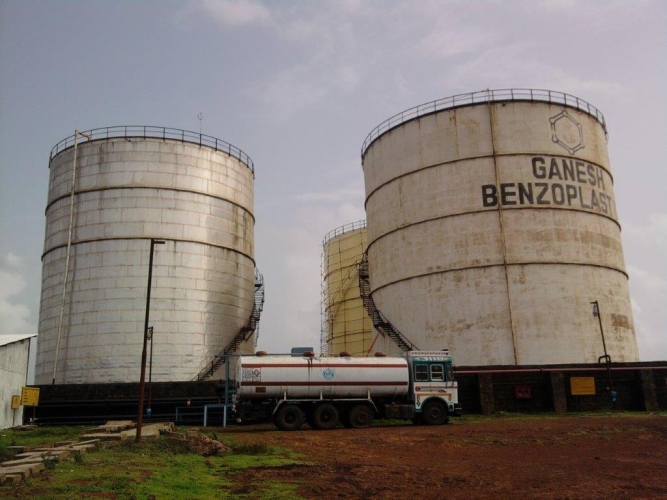


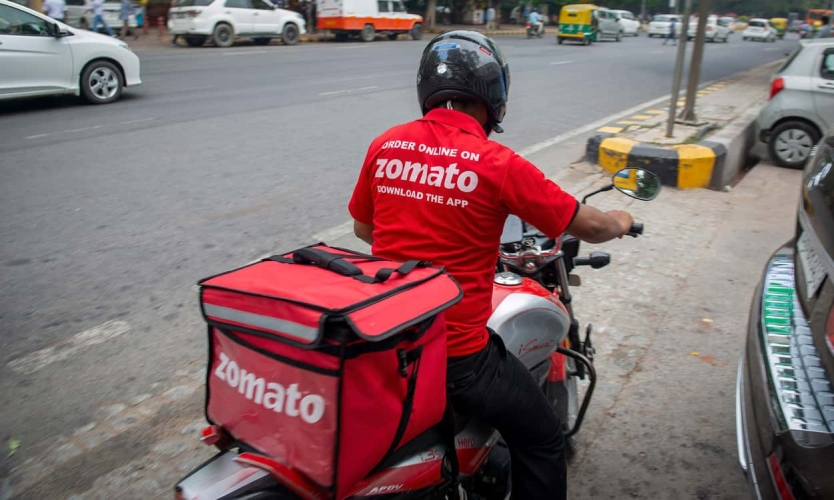

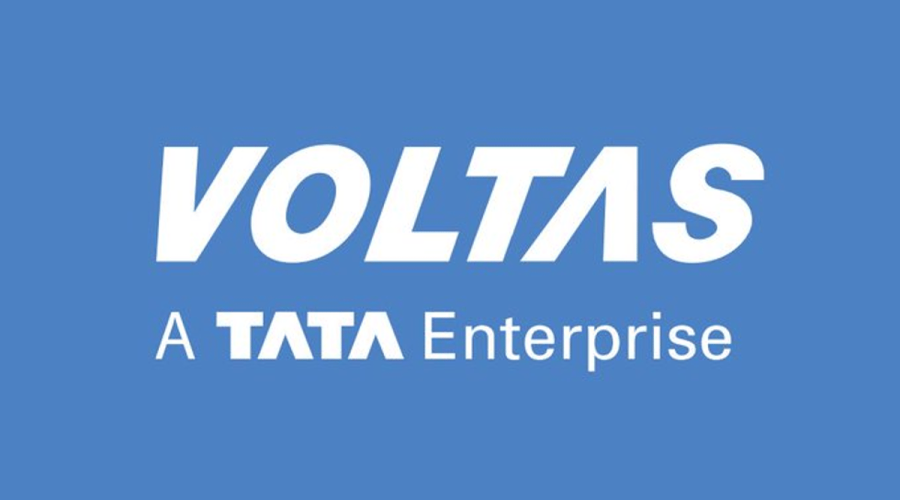
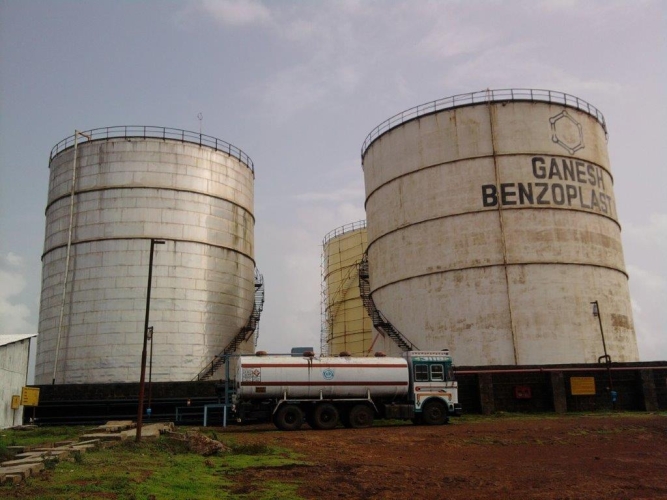

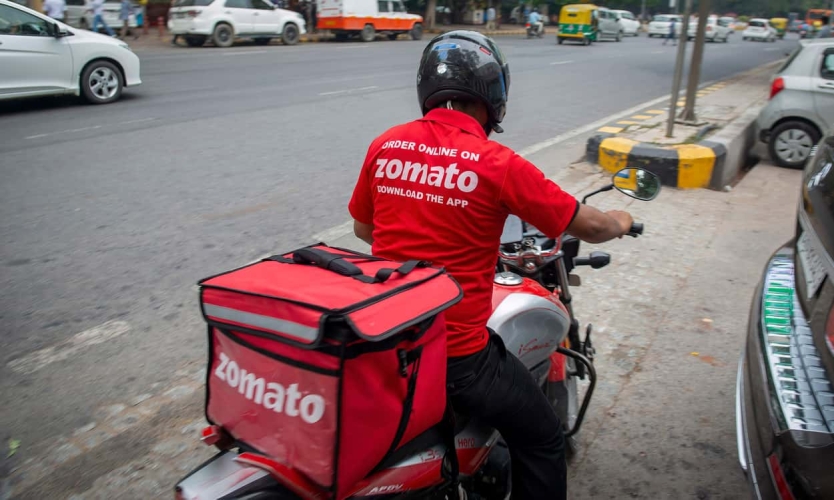

Mar 30 2024, 07:59
- Whatsapp
- Facebook
- Linkedin
- Google Plus
0